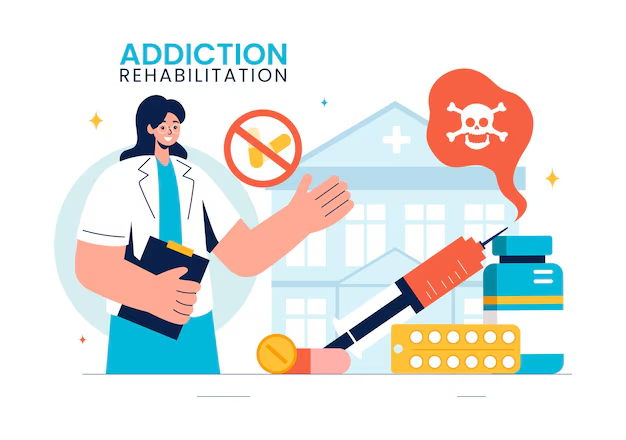A Comprehensive Guide To Personal Loans
Personal loans have become a go-to financial resource for many Americans, whether it’s to pay off debt, tackle home renovations, or finance that dream vacation. Unlike secured loans, which require collateral like a car or house, personal loans are typically unsecured. Borrowers repay them in fixed monthly installments over a set term, plus interest. While they can be handy, it’s vital to grasp how they work, the different types available, and their pros and cons before making a decision.
What Is a Personal Loan?
At its core, a personal loan is a straightforward type of credit. Borrowers receive a lump sum that they repay over time with interest. Because these loans are generally unsecured, lenders evaluate your creditworthiness based on your credit score, income, and debt-to-income ratio. You can use a personal loan for almost anything—debt consolidation, home improvements, medical bills, or even that long-awaited getaway.
One of the biggest perks of personal loans is their flexibility. Unlike auto loans or mortgages that are tied to specific purchases, personal loans allow you to spend the money however you see fit. Plus, if you have good credit, you might snag some competitive interest rates, making them a versatile option for many.
Types of Personal Loans
- Unsecured Personal Loans: The most common variety, these loans don’t require any collateral. Lenders base their decisions primarily on your credit history and income.
- Secured Personal Loans: Less common, these loans are backed by collateral, like a savings account or vehicle. While they often come with lower interest rates, the downside is that you risk losing your asset if you can’t repay.
- Fixed-Rate Loans: These loans have a consistent interest rate throughout the term, leading to predictable monthly payments—great for budgeting.
- Variable-Rate Loans: Also called adjustable-rate loans, these can start with lower rates but may fluctuate over time, which could lead to higher payments down the road.
- Debt Consolidation Loans: Tailored for consolidating multiple debts, these loans can simplify your payments and potentially lower your interest rates.
- Co-signed Personal Loans: If you have a spotty credit history, a co-signer—often a family member or close friend—can help you secure a loan, but they’ll be on the hook if you default.
Check out: Cost of Private Jet Insurance in the USA
How Personal Loans Work
When you apply for a personal loan, lenders will take a close look at your financial situation. They’ll check your credit score, income, job status, and existing debts. Once you’re approved, you’ll get the money in one lump sum, with repayment terms typically ranging from one to seven years.
You’ll make fixed monthly payments that include both principal and interest. Most personal loans have fixed interest rates, making it easier to plan your budget. Remember that the total cost of the loan is reflected in the annual percentage rate (APR), which includes the interest and any additional fees.
The monthly payment depends on the loan amount, interest rate, and term. Longer terms mean lower monthly payments but can lead to higher overall interest costs. Conversely, shorter terms have higher monthly payments but less interest over time.
Check out: Luxury Living in Canada
Pros of Personal Loans
- Flexibility: Use the funds for nearly anything—from paying off credit cards to handling unexpected expenses.
- Fixed Payments: With fixed-rate loans, your monthly payment stays the same, making budgeting simpler and reducing the chance of surprises.
- Debt Consolidation: These loans can be an effective way to combine high-interest debts into a single, lower-rate payment.
- No Collateral Required: Most personal loans are unsecured, so you won’t risk losing valuable assets.
- Lower Interest Rates for Good Credit: If your credit is solid, personal loans often have lower rates than credit cards, making them a smart choice for larger purchases or debt consolidation.

Cons of Personal Loans
- Higher Rates for Poor Credit: If your credit isn’t great, expect to face higher interest rates, making the loan pricier.
- Potential Fees: Some loans may come with origination fees, late payment charges, or prepayment penalties, which can add to your costs.
- Fixed Payments: While predictable, fixed payments can be a challenge if your financial situation changes.
- Impact on Credit Score: Taking out a personal loan can affect your credit score, especially if you miss payments or apply for multiple loans at once.
- Risk of Over-Borrowing: The ease of getting a personal loan can tempt borrowers to take on more debt than they can handle.
Check out: Most Affordable Car Insurance Providers in the USA
When Should You Consider a Personal Loan?
Personal loans can be a smart option for consolidating high-interest debt, covering surprise expenses, or financing major purchases. However, it’s crucial to assess your financial situation carefully. If you can get a lower-interest loan, like a home equity loan or balance transfer credit card, those might be better bets.
Before you apply, take a hard look at your budget to ensure you can manage the monthly payments. Shop around and compare rates and terms from various lenders to find the best deal. Finally, ask yourself whether the loan aligns with your financial goals or if it could lead you deeper into debt.
Conclusion
Personal loans offer a convenient way to borrow money for a range of needs. While they can be effective, it’s essential to fully understand the terms, fees, and repayment obligations before diving in. For those with solid credit, these loans often come with attractive interest rates and predictable payments, making them practical for managing significant expenses or consolidating debt. However, if your credit is shaky or your finances are unstable, personal loans could carry risks that might outweigh their benefits. Being informed and borrowing responsibly is key to making the most of personal loans.








